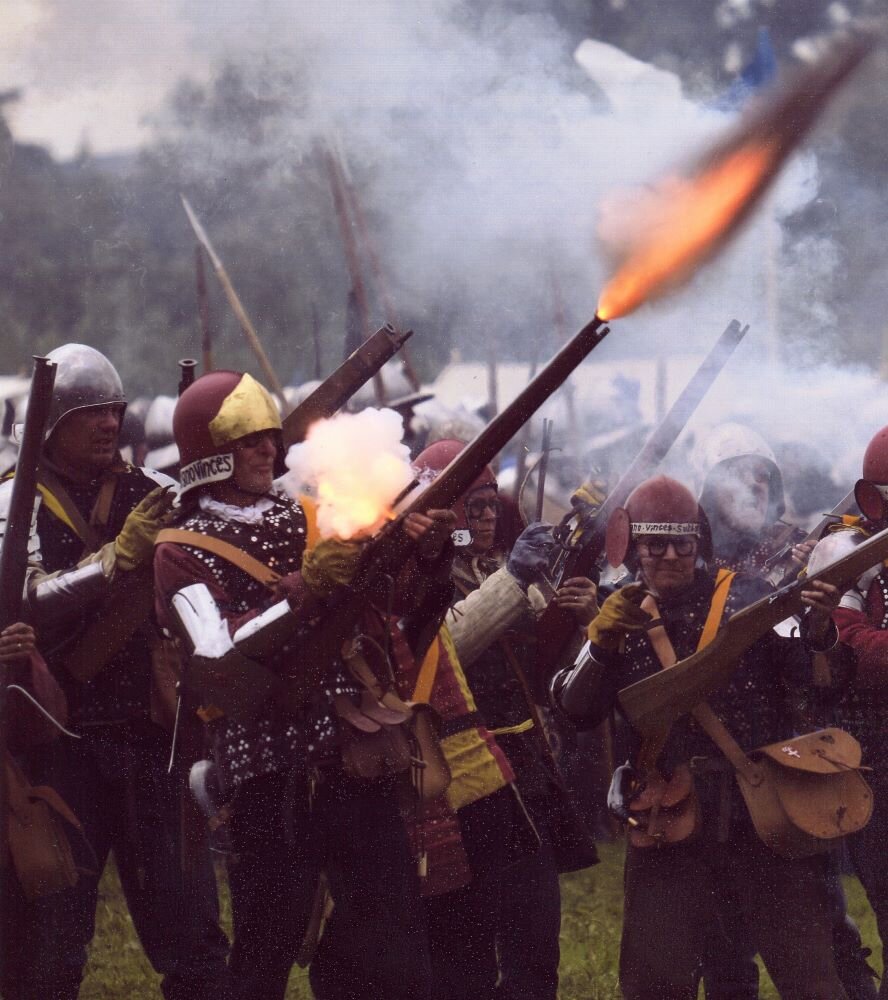May 20th 1471: The French Connections

Burgundian Hand Gunners
(Tewkesbury Medieval Festival) (Finn Kennison)
Both the Earl of Warwick’s and King Edward’s invasions of England had support from Europe; Warwick from France, Edward from Burgundy. Each was indebted to their benefactor, and in Warwick’s case there had been a firm commitment to send support in King Louis’ long campaign against his cousin the Duke of Burgundy.
Louis was not a conventional medieval king. Known as the ‘Universal Spider’, with his obsessive nature he ruled through machinations and intrigue. His price for helping Warwick and Margaret take the throne of England was that England should declare war on Burgundy.
Almost as soon as Henry was back on the throne a French commission had arrived to put the finishing touches to a military alliance. Unsurprisingly, Warwick had a great deal of difficulty selling this idea to the nobility. In the event, Edward’s arrival back in England put an end to the possibility.
Affairs in France were even more confused than in England, with more devolved power and Louis facing threats from the Duke of Berry, the Duke of Brittany and, principally, Charles, Duke of Burgundy. The border between France and Burgundy along the River Somme was in dispute and Louis was planning to settle the dispute by force, with the help of the Earl of Warwick, who constantly wrote to him with excuses for non-arrival. In reality, he couldn’t raise any enthusiasm in England.
Louis’ forces crossed the Somme and took control of several towns there, which enraged the Duke of Burgundy. He retaliated by besieging Amiens. Here, Warwick’s promised forces were vital to the French plans to relieve the city. Louis waited impatiently for news of their landing, which didn’t come. In late March, French envoys arrived home, and their news, particularly of the return of Edward, with Burgundian support, convinced Louis that English help would not arrive. He announced that he would not relieve the seige of Amiens, saying that he distrusted some of his officers. He entered into secret negotiations with Duke Charles instead.
Such was the state of piracy in the English Channel that messages was very slow in crossing to and from England. It wasn’t until 1 June that Louis got the news that his investment in Warwick and Margaret had come to naught. Sforza da Bettini wrote to the Duke of Milan:
Yesterday his Majesty here heard with extreme sorrow, by clear and manifest news from England, so it appears, that king Edward has recently fought a battle with the Prince of Wales, towards Wales, whither he had gone to meet him. He has not only routed the prince but taken and slain him, together with all the leading men with him. He has also taken the queen and sent her to London to keep King Henry company, he also being a prisoner there; and so at length King Edward remains the peaceful lord and dominator of that Kingdom of England without having any further obstacle whatever.
Your Excellency may imagine the great joy and satisfaction of the Duke of Burgundy at these affairs. He has shown it by public demonstrations, constant processions, ringing of bells and bonfires so that one would imagine the whole country to be on fire. It is expected to make him so haughty that he will no more consent to a year's truce.
Ham, the 2nd June, 1471.
It wasn’t the end of French involvement in English affairs, though.


No comments:
Post a Comment